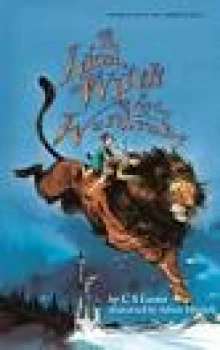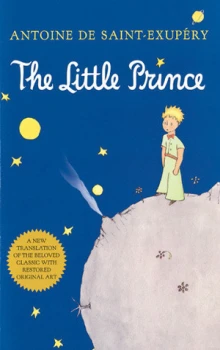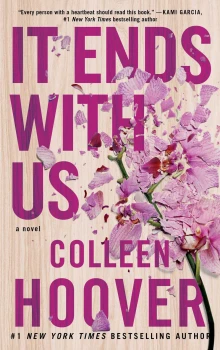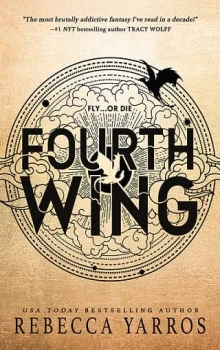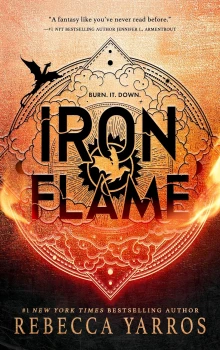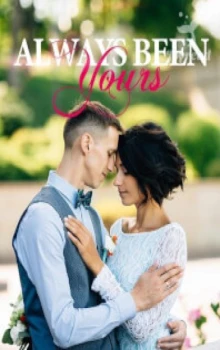Eighteen
Directly ahead of us was a bridge, its supports arching above the three-laned street in a crisscross of white. Once we passed over the blue water, we’d be out of the United States. Probably forever.
The possibility of a new life that had buoyed me just hours ago drained away, leaving me empty and filled with a silent longing.
Hunter.
Once we crossed into foreign territory, he’d be that much harder to reach.
I bit my lip and stared out the window.
Digital signs directed us to the appropriate lane. We pulled up behind a long line of cars.
We bumped forward, one vehicle at a time.
“Almost there,” Mom said when another car moved. Her hands tightened on the wheel. “Let’s just hope they aren’t expecting us.”
I peered over my shoulder, at cars boxing us in from behind, and then ahead, at the six uniformed, armed workers in the kiosks and the line of official cars in front of the small building to the left. I rubbed my fingers up and down my seatbelt to calm my nerves. I was afraid that if they were expecting us, then we didn’t stand a chance.
Finally we approached the blue-topped enclosures that housed Canadian border patrol. We were only two cars back now in lane seven, not far from the red sign proclaiming STOP/ARRÊT.
Over in lane number six, I watched as the uniformed worker shook his head at something the driver said through the open window—even I couldn’t hear over all the idling engines—and gestured a tall male coworker over. After he issued a command to the driver, the trunk popped open and the second worker started tearing through the contents, while the first one opened the back door and peered inside.
When they finished, the two guards conversed, shaking their heads. One held up a laptop and gestured to it. Then they directed the driver over to the left, where a green sign proclaimed EXAMINATIONS/CUSTOMS.
From the way Mom clenched the steering wheel even harder, her knuckles whitening under the skin like little curved stones, I knew she’d noticed the commotion, too.
The green Camry with a Canadian license plate in front of us pulled forward. We were next.
“Are we going to be okay?” I asked, lacing my hands tightly together in my lap and squeezing.
“I hope so,” she said softly. “But we have to do everything possible not to get pulled out for inspection.”
Pulled out. I looked at where the gray Oldsmobile had parked as directed in front of the examinations building, watched as the driver was escorted inside. Pulled out like that guy.
Judging by our border patrolman’s surly frown, I could only guess his pullout quota was higher than average.
“Remember, let me do all the talking.”
I flipped open my passport and stared at the photo inside.
Stephanie Prescott, born November 18, age sixteen.
It looked good, but good enough to hold up under inspection, along with the SUV’s phony registration to Mom’s fake name? Good enough to escape the notice of the military? And what about the mysterious group from the motel with all their technology—were they somehow monitoring the checkpoint too?
Too many unknowns to loosen the sensation of steel bands gripping my chest. Too many ways to get caught.
And beneath the fear, the traitorous thought underlying everything. The thought that if we were rejected, we’d be returned to U.S. soil. Which would put me that much closer to Hunter.
The Camry pulled away from the checkpoint, and the uniformed guard waved us forward. Showtime.
I rolled down the window as Mom pulled forward, hoping the fresh air would drive away the panic that clutched at me with sharp claws. My toes curled into the soles of my shoes. Mom turned her head and shot the border patrolman a strained smile, while I prepared for the worst-case scenario.
The short, jowly man didn’t give so much as a hint of a return smile as Mom handed over the requested passports and car registration.
He glanced at our passports and frowned.
Typical frown, or did it mean something?
“Where’s your final destination in Canada?” he asked.
“London, Ontario.”
“Reason?”
“Funeral, unfortunately,” Mom said, making her voice crack a little on the last syllable.
He didn’t say anything else, just studied Mom’s passport picture, then stared at Mom. Looked down again, looked up. His frown deepened.
My panic swelled, surging through my arms, my throat. He knew something. He was going to pull us out.
“Well,” he started, scrutinizing Mom’s face.
I grabbed the center console to steady myself. This was it. This was when he sent us to the customs building. From there, they’d figure out our passports were false, call the U.S. government, and we’d be toast.
“. . . you don’t have that black eye in your passport picture.”
What?
I bit my cheek and stared at my lap, holding back a nervous giggle. The driver’s seat creaked when Mom shifted her weight, and her hand flew to her cheekbone.
“No. No, I don’t. I only bring it out for special occasions.” She topped off that whopper by leaning closer to the window and gazing up at him from beneath her lashes. “If you must know, I lost a fight with our dog’s nose.” She flashed a bright smile, the likes of which I’d never seen, and suddenly I wanted to crawl into the backseat. Was Mom actually flirting with this guy?
If so, it was working, because his sour expression melted into a return smile. “Big dog?”
She nodded. “Rhodesian ridgeback, a ninety-five pound baby.”
I didn’t even know what a Rhodesian ridgeback looked like, but it didn’t matter. Her charm was working wonders.
He handed the passports back to her. “Well, when you get back, take that dog to obedience class. Have a nice visit.” He said the magic words and waved us on, and just like that, we were in Canada.
Being on foreign soil must have soothed Mom, because she fell asleep twenty minutes after we passed through the checkpoint and switched roles, her light snores discernible over the persistent hum of the tires. Her cheek was curled into her hand. Sleep softened the worry lines around her eyes and mouth and made her appear younger, more relaxed than usual. I’d always attributed her tension back at the ranch, her overprotectiveness, to losing Dad. In retrospect, I realized she’d probably been on edge almost every second. Anticipating the day when we’d have to toss our belongings into the car and do exactly this: flee.
Why, though? Why had she taken such chances, put her life in this type of danger? Despite the doubts the man at the motel had raised, I had to believe what Mom had told me was true. That she realized they’d created something beyond their expectations and that I deserved a chance at a real life. People didn’t subject themselves to these types of risks on a whim.
Uneasiness stirred in my gut. At least, I hoped they didn’t.
We reached the Toronto airport without any further drama. I followed the signs and headed for long-term parking, taking the ticket and tucking the SUV into an open space in the middle of a huge cluster of cars. Hiding in plain sight, so to speak.
“You ready, Stephanie Prescott?” Mom rechecked the interior pocket of her purse for our passports before turning to give me a once-over. Time ticked on, and her once-over turned into a twice-over, and a thrice-over, until a chill feathered over me.
“What?”
Without warning, her hands whipped out to cup my cheeks, and the unexpected intimacy of her touch floored me. “If anything happens, you need to forget about me and go to Germany alone.”
Despite her warmth, the cold spread, like someone was rubbing my skin with pure ice. I closed my eyes and pushed the anxiety away. “Okay.”
One quick squeeze before she sagged against the headrest. “Thank you, Mila.”
At her heartfelt thanks, guilt pinched my chest. I’d only agreed to reassure her.
We grabbed our suitcase, locked the car, and followed the signs toward the stairwell, going downstairs until we got to street level.
The airport’s exterior resembled a giant roller coaster, with its elegantly curving rooftop and white metal strips crisscrossing the endless stream of windows.
A roller coaster, or a sleek, giant prison.
Six other travelers surrounded us as we crossed the street: a middle-aged mom and dad with two young daughters, and a pair of businessmen in suits and ties, rolling leather briefcases behind them. I searched the sidewalk ahead of us and spotted three more single passengers, two older women and one lone man in a Windbreaker, lounging against the wall as he smoked a cigarette, his eyes taking in all of us.
His scrutiny made me want to speed up, but I forced my feet to maintain a leisurely pace. In the back of my mind, though, I wondered if he could be connected to the men from the motel, or the military. If he had a Taser or, worse, a gun.
Electricity stirred in my head. My hands fisted when the glowing words appeared. When my smooth, mechanical voice spoke.
No weapons detected.
As we walked toward the glass doors that opened up into Terminal 3, I found my gaze kept sliding over the other travelers. Wondering how we would even know in time if someone was following us.
Our suitcase clanked over the sill of the sliding glass doors that led inside the airport. The wide-open interior enveloped us, its soaring, curved ceilings making me feel overexposed. The starkness of it all—the white floors and gleaming metal—while aesthetically pleasing, reminded me once more of the girl in the room.
I shuddered at the memory, realizing I’d never asked Mom about it. Now certainly wasn’t the time, though. Instead, I focused on Hunter. On the husky rasp of his laugh, his clean, sandalwoody smell. His unconditional support after I’d been thrown from Kaylee’s truck. The flutters he ignited when his skin touched mine. And again when his eyelashes swept down before our almost-kiss.
Once we got on the plane, Hunter would be out of reach for good.
I followed Mom to the second level, up to ropes that marked the entrance of the Finnair ticket counter. Only three passengers stood in line ahead of us—two women and one little boy—so we waited quietly. As a group, they strode up to an available agent at the ticket counter, leaving us at the front of the line. Praying that our passports would hold up one more time.
“Next in line, please.”
A harried-looking woman, middle-aged with tight brown curls, greeted us. Mom asked her about the next available flight to Berlin—there’d been no way to book it safely in advance without potentially alerting the military—and the woman’s fingers clicked over the keyboard.
“You’re in luck. We have seats available on the next flight, leaving in three hours. But since this is last-minute, the tickets are $3,339 each.”
“We’ll take them.”
“Passports and credit card, please.”
Mom dug in her purse and produced the phony passports and the credit card issued to the fake name. She handed them over with a steady hand, even though I was sure she was as tense as I was. If the credit card and passports were rejected, we could kiss our escape plan good-bye.
The woman barely glanced at the photos, simply typing in our names. Mom relaxed next to me. So close. Then the woman swiped the credit card.
A harsh beep sounded, one that radiated straight into my chest, freezing it. The woman frowned down at the screen. When she looked up, her features were arranged into a polite mask. “I’m sorry, your credit card has been declined. Do you have another form of payment?”
Mom’s fingers tightened reflexively on her purse. I could sense the swelling panic inside her. Or maybe that was just me, projecting my own fear.
Mom’s laugh rang high-pitched and false. “There must be some mistake. Can you please try it again?”
With a weary sigh that spoke of annoyance, the woman managed to cling to her fake smile as she went to swipe the card again.
I curled my hand around Mom’s rigid arm. Trying to will her into a confidence I didn’t possess. The card had to work. It had to. If only there were a way to force the machine to work. . . .
This time, when the red shimmered behind my eyes, I didn’t fight it.
Locating signal . . .
The ticket agent shook her head. “You know, if they don’t work the first time, they almost never—” She broke off with an arch of penciled-in brows. “Never mind. It went through.”
With my hand on her sleeve, Mom’s tiny shudder was unmistakable.
“There aren’t any window seats left, but we do have an aisle seat toward the back of the plane with an empty seat next to it, if you like.”
“Perfect, thank you.”
Under the counter, Mom’s hand, clammy with sweat, found mine. We were almost there. We checked our suitcase and headed toward the hall the agent had pointed out, toward airport security.
Only one hurdle to freedom left.

